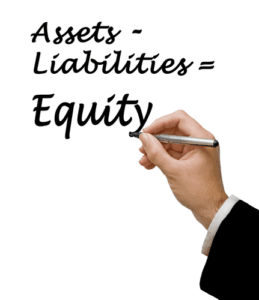
Check out our accounting category and get updates on the latest trends and insights. If you’ve been a business owner for any length of time, you’ve probably seen a wide variety of different accounts or sub-accounts, which can vary wildly. What’s more, they are often customized to fit the business owner’s specific needs.
- It is the catalyst for the entire process that shows any item bought or sold, depreciated, etc., that a business transacts.
- To track revenue accounts, businesses often use accounting software or spreadsheets.
- It is a credit transaction because you have not made the payment in cash immediately at the time of purchase of goods.
- This helps investors uniformly compare the financial performance of multiple companies.
- Based on the exchange of cash, there are three types of accounting transactions, namely cash transactions, non-cash transactions, and credit transactions.
- In most cases, accountants use generally accepted accounting principles (GAAP) when preparing financial statements in the U.S.
- They are the most common forms of transactions, which refer to those that are dealt with cash.
What Are Accounting Records?
- Usually, companies have a dedicated department that overlooks this process.
- These transactions require careful tracking to ensure that payments are collected on time and credit risks are managed.
- Accounting involves summarizing, analyzing, categorizing, and reporting financial transactions.
- Recording transactions is a fundamental process in accounting that ensures all financial activities of a business are accurately documented.
- It is a cash transaction because you have immediately received cash for the goods sold to your customer.
- Merchants not only needed to track their records but sought to avoid bankruptcy as well.
- It is the backbone of any company and deals with finances and financial information.
Managerial accounting analyzes the information gathered from financial accounting. It refers to the process of preparing reports about business operations. The reports serve to assist the management team in making strategic and tactical business decisions. As a business owner, one of the most important things you or your bookkeeper need to do is to record all of your accounting transactions. Any transaction, no matter how small, will impact your business and needs to be properly accounted for. For example, adjusting entries, such as depreciation, amortization, and payroll accruals, would all be posted as adjusting journal entries.
Additional Resources
- This conservative approach can lead to undervalued asset representation, which critics argue fails to show a company’s true worth.
- You decide to open up a small business selling a wide variety of handmade items.
- Transactional accounting is the process that involves recording, summarizing, and reporting financial information.
- Managing debits and credits is essential for keeping financial records accurate and ensuring smooth operation.
The work performed by accountants is at the heart of modern financial markets. Without accounting, investors would be unable to rely on timely or accurate financial information, and companies’ executives would lack the transparency needed to manage risks or plan projects. Regulators also rely on accountants for critical functions such as providing auditors’ opinions on companies’ annual 10-K filings. In short, although accounting is sometimes overlooked, it is absolutely critical transaction analysis accounting for the smooth functioning of modern finance.
Recognition of Revenue and Liabilities

For some, such as publicly traded companies, audits are https://x.com/bookstimeinc a legal requirement. However, lenders also typically require the results of an external audit annually as part of their debt covenants. Therefore, most companies will have annual audits for one reason or another.
If you’re using a manual bookkeeping or accounting system, you can record these entries directly into your general journal. The entry above reduces the accounts payable balance and also reduces the cash balance. If you need to record this manually, it would be recorded in the cash disbursements journal. The three main types of accounting are management accounting, tax accounting, and financial accounting.
How does a liability account differ from an asset account in accounting?

These conventions help to increase the consistency, reliability and comparability of financial statements and make them more meaningful for the financial decision-making needs of stakeholders. Yet, it should also be Accounting Periods and Methods noted that these conventions are far from perfect, are open to interpretation and can be misused to present inaccurate financial data. Such accounting conventions are ad hoc agreements among accountants to treat circumstances where formal rules may not be applicable. They help companies record their transactions in a way that they are still comparable with transactions of similar kinds.

Personal Transactions
It lets the organization keep track of how it is doing financially. The types of accounting transactions may be based on various points of view. The first one that we will discuss is the types of accounting transactions according to institutional relationships, namely external and internal transactions. For long-term construction projects, the accounting convention method of percentage-of-completion is usually used. The method allows for revenue recognition during the different stages of the project completion, ensuring financial reports reflect ongoing progress. Accounting conventions can have varied applications depending on the industry.

This can include cash transactions, such as when a customer purchases a print cartridge from your office supply store. It also includes the payment received on an invoice for goods and services purchased on credit. Now that you know the different types of accounting, it’s time to figure out which one your business needs—and you might need more than one. Fiduciary accounting is a type of accounting that deals with the financial transactions of an estate or a trust. Fiduciary accountants represent the beneficiary and provide information on expenditures, income, assets, and liabilities for that estate or trust.
Internal Revenue Service (IRS) and the Canada Revenue Agency (CRA), use standardized accounting financial statements to assess a company’s declared gross revenue and net income. The system of accounting helps to ensure that a company’s financial statements are legally and accurately reported. Accrual accounting records the dollar amounts when a transaction (a bill going out or an invoice coming in) occurs, not when the cash is actually exchanged. An accrual accounting method is required by law when a business exceeds 5 million in sales. It is believed that this method of accounting gives a more accurate picture of a company’s finances. Accounting transactions are a little different because of the way they may be recorded.